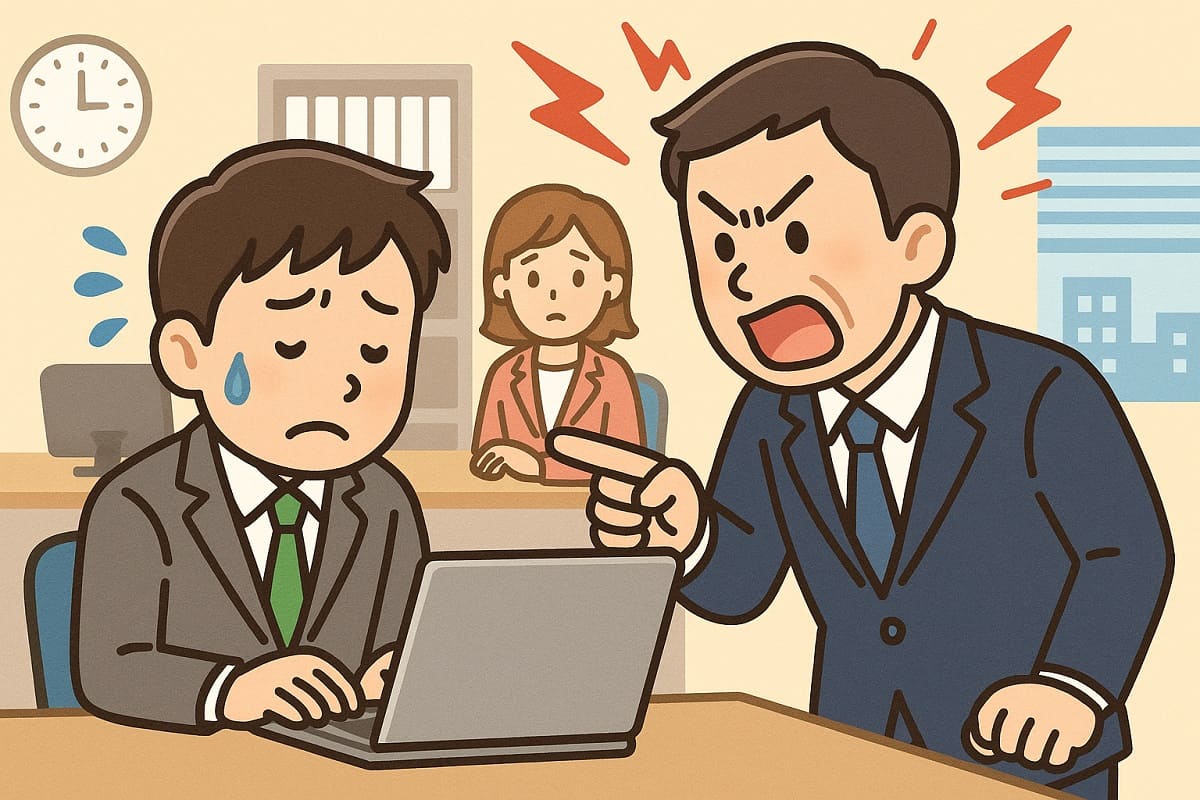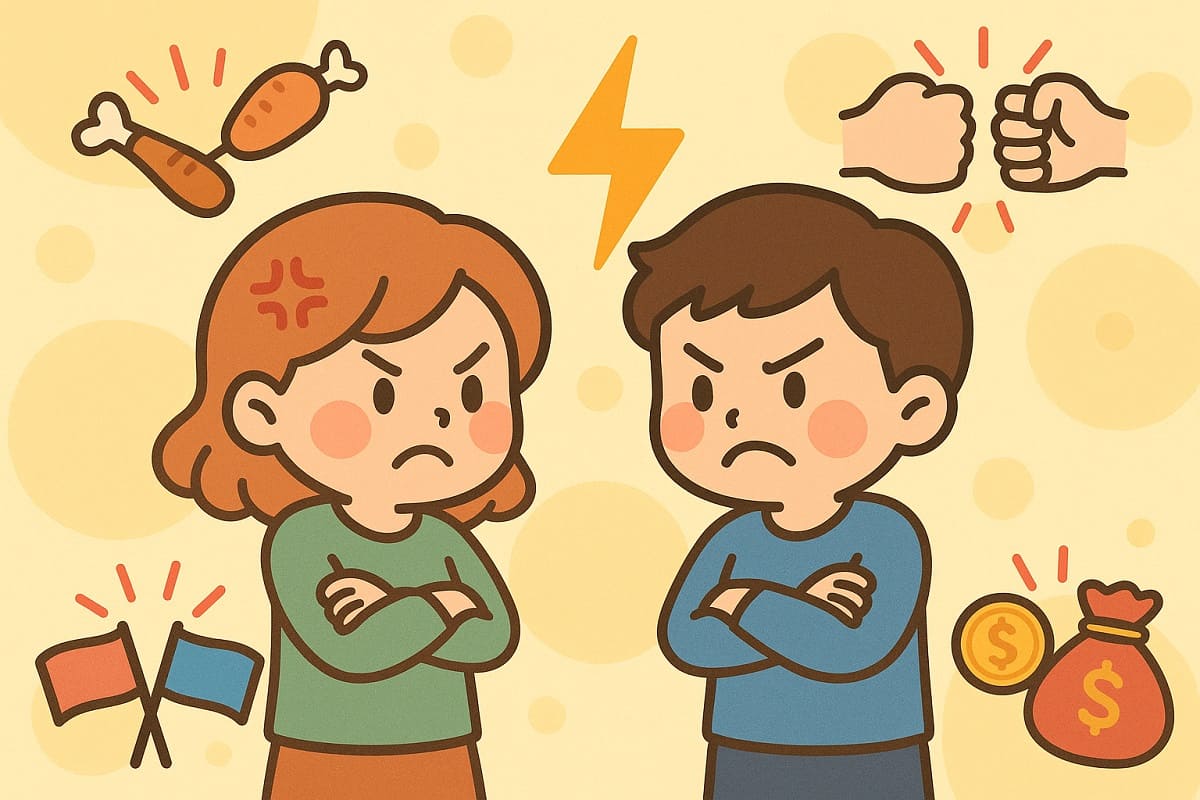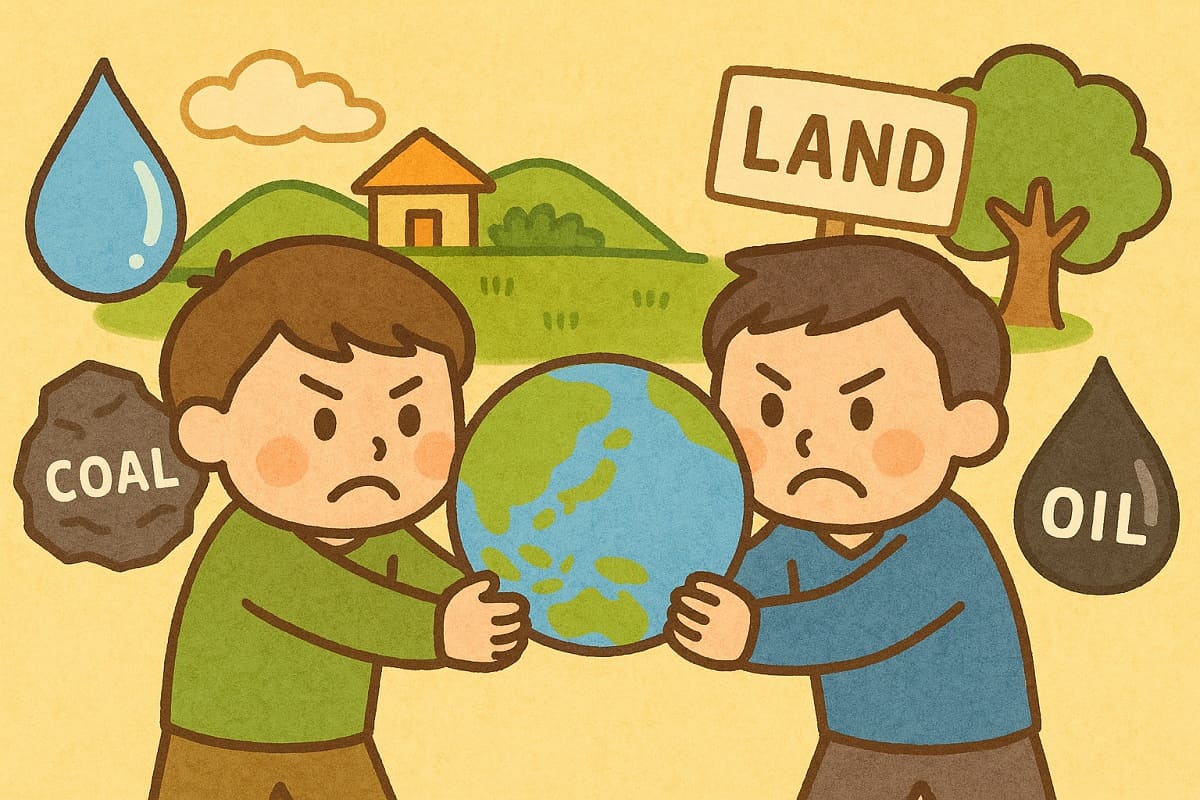Why Does “Power Harassment” Happen? Understanding the Unique Causes of Workplace Bullying in Japanese Workplaces

Have you ever heard the term “power harassment”?
It’s a Japanese term of workplace bullying where someone in a position of power, like a manager or senior staff member, harasses someone in a weaker position. For example, shouting at a subordinate, embarrassing them in front of others, or forcing them to do unreasonable tasks all fall under “power harassment”.
Lately, the term “power harassment” has been appearing more often in the news and on social media. But why does power harassment happen? And why is it especially common in Japanese workplaces?
In this article, we’ll explore the cultural and structural characteristics of Japanese society and workplaces that create an environment where workplace bullying is more likely to occur.
What Exactly Is “Power Harassment”?
First, let’s clarify what counts as “power harassment”.
According to Japan’s Ministry of Health, Labour and Welfare, an act is considered “power harassment” if it meets the following three conditions:
- The behavior comes from someone in a superior position at work (e.g., a boss or senior employee).
- The behavior goes beyond what is necessary or appropriate for work.
- The behavior harms the mental or physical well-being of the victim.
Examples include shouting at someone repeatedly for making a mistake, mocking their personal life, or isolating them by transferring them to a department with no coworkers.
Such actions can seriously damage a person’s mental health, leading to depression, resignation, or even suicide.
So why do such harmful behaviors happen in the workplace?
Why Is “Power Harassment” So Common in Japan?
1. Strong Hierarchies and the Seniority System
In Japan, the belief that “older or longer-serving employees are more respectable” has long been ingrained. This is known as the seniority system.
Under this system, employees are expected not to challenge their seniors or bosses. Even if a boss is clearly in the wrong, the unspoken rule is to obey without question.
In such a workplace culture, people in higher positions may abuse their authority and give unreasonable orders or yell at subordinates — and no one around them feels able to step in or speak up.
2. A Culture of Conformity Pressure
In Japan, there’s a strong emphasis on fitting in with others. This is often called dōchō atsuryoku (conformity pressure).
For example, you might feel obligated to go to a work dinner when your boss invites you, or you may hesitate to go home on time if others are still working, even if you’re done.
In such a culture, people tend to stay silent even when they feel that a boss’s behavior is inappropriate. As a result, “power harassment” is often overlooked or left unaddressed.
3. Unclear Job Descriptions
In many Japanese companies, job responsibilities are not clearly defined.
This means that if a boss says “Do this” or “Help with that,” it’s hard for subordinates to say “That’s not my job.”
Because of this ambiguity, it’s difficult to tell the difference between a reasonable job instruction and abuse of authority. This unclear boundary makes “power harassment” easier to occur.
4. A Society Where Changing Jobs Is Difficult
In Japan, there’s still a belief that the ideal career path is to stay at the same company for life.
Even if an employee faces “power harassment”, they might think, “If I quit, I might not find another job,” or “I just need to endure a few more years.”
This mindset makes it hard for people to speak out. As a result, they may stay in a harmful situation and suffer increasing mental distress.
How Does Japan Compare to Other Countries?
In Western countries, job descriptions are clearly outlined, and worker rights are more strongly protected by law.
For example, France legally banned “moral harassment” (a form of psychological bullying) in the workplace in 2002. Workers are encouraged to speak out or change jobs when treated unfairly.
In contrast, Japan was late to introduce legal protections against “power harassment”. Until recently, there were few places to seek help, and a strong cultural norm of silence persisted.
However, since 2020, Japanese law has required companies to take measures to prevent “power harassment”. More companies now provide consultation services and training for employees.
Still, if the workplace culture doesn’t support the use of these systems, real change will be slow. Having rules alone isn’t enough — the atmosphere also needs to encourage action.
What Can We Do to Prevent “Power Harassment”?
So how can we eliminate “power harassment”?
The key is for companies, society, and individuals to each do their part.
● What Companies Can Do
- Clearly state a zero-tolerance policy on “power harassment”
- Set up safe and accessible consultation services
- Provide training for managers on how to give proper, respectful guidance
● What Society Can Do
- Make laws and systems easier to understand and use
- Provide more education on human rights and labor rights in schools
- Encourage media to raise awareness about workplace harassment
● What Each of Us Can Do
- Speak to someone you trust or a professional if something feels wrong
- Support others when you see them in trouble
- Understand that guidance and abuse are not the same thing
Conclusion
“Power harassment” doesn’t just come from one person’s bad attitude. More often, it’s caused by social structures and workplace cultures.
But by gradually changing the systems and beliefs that support harassment, we can reduce it.
Let’s start by noticing when there’s an atmosphere that allows people to get hurt, and taking small steps to build safer, kinder workplaces for everyone.
Main References
- Ministry of Health, Labour and Welfare. (2024). Report on Workplace Harassment Survey (FY2023).
- Ministry of Health, Labour and Welfare Equal Employment Opportunity Bureau. (2019). Guidelines for the Revised Labor Policy Promotion Act.
- Research Institute for Advancement of Living Standards. (2010). Harassment and Workplace Culture: Toward Harassment-Free Workplaces. DIO No.255.
- Japan Institute for Labour Policy and Training (JILPT). (2022). Legal Frameworks on Harassment in Foreign Countries. Research Report No.216.
- Recruit Works Institute. (2020). Analysis of Workplace Harassment (JPSED Report 2020).












